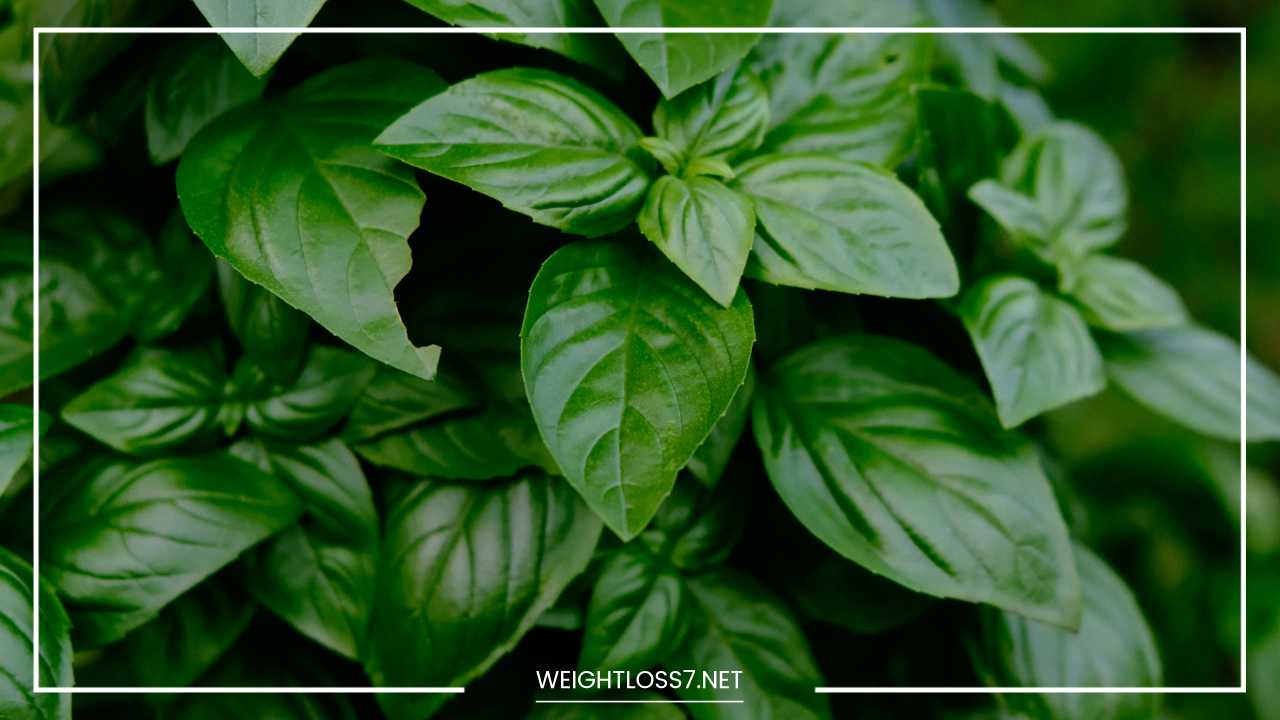Basil Uses and Health Benefits

Basil
Basil: Unveiling the Rich Tapestry of an Herb’s Journey
Basil, often hailed as the “fragrant herb,” possesses a storied history and a captivating journey that transcends time and cultures. The very essence of its name, meaning “be fragrant,” sets the stage for the aromatic symphony that this herb orchestrates in culinary delights.
While basil has become an integral part of global cuisines, it wasn’t always revered; ancient civilizations, particularly the Greeks, harbored disdain for it.
However, as epochs unfolded, basil found its way into the hearts and kitchens of many, establishing itself as a culinary staple in Italian, American, and Roman traditions.
This article delves into the multifaceted journey of basil, exploring its cultural significance, culinary applications, and medicinal uses, unraveling the layers of this aromatic tapestry.Historical Perspectives on Basil
The etymology of the word “basil” illuminates the herb’s fragrant nature, offering a glimpse into its ancient allure. The love-hate relationship with basil is evident in the varied opinions held by diverse cultures.
While Americans and Romans embraced it as a culinary gem, the Greeks, in stark contrast, held a deep-seated dislike for this fragrant herb.
On the Indian subcontinent, Hindus elevated basil to a symbol of happiness, planting it in their homes, whereas Greeks and Persians did not share the same fondness.
Italy emerges as a pivotal player in basil’s historical narrative. The herb found a cherished place in Italian culinary practices, particularly in pasta sauces.
Even today, crafting a classic pasta sauce without the aromatic touch of basil is considered sacrilege in many kitchens.
The global phenomenon of marrying basil with tomato sauce reflects the herb’s ability to transcend cultural boundaries and become an essential flavor profile in cuisines around the world.
Culinary Uses of Basil
Basil’s versatility in the kitchen has been a key contributor to its widespread popularity. Flourishing in temperatures above 50 degrees with ample sunlight, basil is an easy herb to grow, both in its fresh and dried forms.
Its distinctive flavor profile makes it an indispensable ingredient in various dishes. A lesser-known fact about basil is its ability to intensify in flavor the longer it simmers in a dish, providing an explanation for the extended simmering periods often employed in crafting rich pasta sauces.
While basil’s association with oregano in pasta sauces is well-established, its culinary applications extend far beyond Italian cuisine.
Basil enhances the flavors of fish, vegetables, meats, and soups, showcasing its adaptability and versatility. The herb’s presence in the kitchen is not just a matter of taste; it has become a symbol of culinary finesse and an integral part of the global gastronomic landscape.
Symbolic and Medicinal Significance
Beyond its culinary prowess, basil holds symbolic and medicinal significance, weaving a rich tapestry of cultural and holistic importance.
In ancient times, basil was considered a royal herb with strong associations with love. Men would present a branch of basil to their prospective partners, and the acceptance of this fragrant gift symbolized a silent agreement to love and fidelity for eternity.
Botanically related to the mint family, basil inherits various medicinal properties. Herbalists have long utilized basil to address a spectrum of health issues, including stomach cramps, vomiting, constipation, headaches, and anxiety.
The transformation of basil into a hot tea, known for its digestive benefits and anti-gas properties, has been a traditional remedy embraced across cultures.
Some even claim that a cup of basil tea contributes significantly to a restful night’s sleep, adding a holistic dimension to this herb’s influence.
Global Culinary Impact
As basil continues to be one of the most common household herbs used today, its impact on global culinary practices is undeniable.
Whether in the bustling kitchens of Italy, where it is torn fresh from the plant and minced for pasta sauces, or in the homes of chefs worldwide experimenting with diverse cuisines, basil has cemented its status as a culinary necessity.
The herb’s aromatic allure and ability to elevate the simplest of dishes to gastronomic delights have made it a cherished ingredient across continents.
Herb Gardens and Beyond
For those who decide to cultivate an herb garden, basil offers more than just culinary benefits. Beyond its flavor-enhancing qualities, basil plants are known to repel flies, making them valuable additions to outdoor spaces.
This dual role, both culinary and practical, further solidifies basil’s place in the hearts of gardening enthusiasts and chefs alike.
Basil Health Benefits
Basil, a popular herb in many cuisines, not only adds flavor to dishes but also offers various health benefits. Here are some potential health benefits of basil:
- Rich in Nutrients:
- Basil is a good source of essential nutrients, including vitamin K, vitamin A, vitamin C, manganese, and copper.
- Anti-Inflammatory Properties:
- Basil contains compounds such as flavonoids and volatile oils that have anti-inflammatory effects. These may help reduce inflammation in the body.
- Antioxidant Activity:
- The antioxidants in basil, such as polyphenols, may help protect the body’s cells from oxidative stress and damage caused by free radicals.
- Heart Health:
- Basil may contribute to heart health by helping to lower blood pressure. It contains compounds that may dilate blood vessels, improving blood flow.
- Antibacterial and Antiviral Properties:
- Basil has been shown to have antimicrobial properties, which may help fight certain bacteria and viruses.
- Adaptogenic Properties:
- Some studies suggest that basil may have adaptogenic properties, helping the body adapt to stress and promote overall well-being.
- Potential Cancer-Fighting Properties:
- Certain compounds in basil, such as phytochemicals and flavonoids, have been studied for their potential anti-cancer properties.
- Anti-Diabetic Effects:
- Basil may help regulate blood sugar levels and reduce the risk of complications associated with diabetes.
- Supports Digestive Health:
- Basil can be beneficial for digestion by promoting the production of digestive enzymes and soothing the digestive tract.
- Stress Reduction:
- The aroma of basil is believed to have a calming effect and may help reduce stress levels.
- Joint Health:
- Basil contains eugenol, which has anti-inflammatory effects and may help alleviate joint pain and inflammation.
It’s important to note that while basil can be a healthy addition to your diet, it’s not a substitute for professional medical advice or treatment.
If you have specific health concerns or conditions, it’s recommended to consult with a healthcare professional for personalized guidance.
Final Remarks
In conclusion, the journey of basil from ancient controversies to modern culinary essentiality is a captivating exploration of adaptability, cultural significance, and holistic benefits.
From facing disdain in the halls of ancient Greece to gracing the kitchens of contemporary households globally, basil has truly evolved into an aromatic ambassador of diverse culinary traditions.
Whether in its role as a royal symbol of love or as a medicinal remedy for various ailments, basil’s impact on human culture and well-being is as profound as its flavor.
As we continue to savor the fragrant notes of basil in our culinary creations, we are not just partaking in a flavorful experience but engaging with a herb that has woven itself into the rich fabric of our shared history and global palate.

















